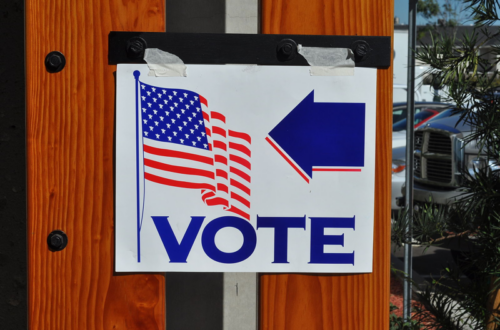On March 8, Florida lawmakers passed HB 1557, known to its supporters as the Parental Rights in Education bill and to opponents as the Don’t Say Gay bill.
Officially signed by Gov. Ron DeSantis on March 28, the legislation sparked controversy for the potential to restrict safety and support for LGBTQ+ students, drawing reactions from parents, teachers, organizations and most recently — companies.
Disney is one of the first companies to receive backlash from Republican lawmakers after voicing opposition to the law. The backlash involves an attempt to dismantle the Reedy Creek Improvement District, despite potential issues involving the district’s debt.
The law
Introduced and sponsored by Rep. Joe Harding, R-Ocala, the law requires a school district to notify a student’s parents of information concerning a child’s upbringing and prohibits instruction about gender identity and sexual orientation in kindergarten through third grade. Conversations about such topics must be age-appropriate for all grades.
On July 1, the law will be implemented and start to impact Florida classrooms.
The National Center for Lesbian Rights is one of the organizations currently filing a lawsuit against the state over the bill on behalf of Family Equality, Equality Florida, teachers and parents. The lawsuit involves defending free speech and equal protection rights.
However, the dozens of major corporations who have also opposed the bill display a general understanding of the long-lasting impacts on LGBTQ+ youth’s mental health and well-being the bill will have, Imani Rupert-Gordon, the NCLR Executive Director, said in a statement.
“Any political threats against specific companies that oppose this heinous new law are just red herrings to obscure the real dangers this type of legislation poses for our most vulnerable youth,” she said.
Supporters of the law argue that parental rights must be reinforced, emphasizing parents’ rights in critical decisions about their children. Republican lawmakers like Sen. Dennis Baxley, R-Ocala, and Harding assert that gender identity and sexuality are inappropriate topics for classroom discussion in kindergarten through third grade.
Disney’s response
Upsetting lawmakers and stirring controversy, Disney tweeted in response to the “Don’t Say Gay” bill on March 28, stating the bill “should never have passed and should never have been signed into law.”
Initially, Disney did not publicly express opposition to the legislation, staying neutral. Facing criticism for not speaking out about the legislation despite being a major corporation with strong ties to Florida, Disney expressed hope for the bill to be repealed after being signed into law.
Republican lawmakers’ response
DeSantis responded to Disney’s callout in a press conference one day later.
“For Disney to come out and put a statement and say that the bill should have never passed and that they are going to actively work to repeal it, I think, one, was fundamentally dishonest but two, I think that crossed the line,” he said.
DeSantis criticized Disney for acting as a “woke” corporation and threatened to revoke the company’s self-governing powers, granted by the Reedy Creek Improvement Act.
The Reedy Creek Improvement District allows Disney to regulate its own land. This act, passed in 1967, aimed to foster economic growth and tourism, incentivizing Disney to come to Florida. The Reedy Creek Improvement District has authority over its emergency services, public roadways and building codes.
Before Disney spoke out against the “Don’t Say Gay” bill, the company donated $190,000 to support Republican lawmakers in Florida, though the company has now paused donations amid the controversy.
Several Republican representatives including Harding and Randy Maggard, R-Pasco, have returned thousands of dollars in campaign contributions in light of Disney’s response.
Last week, lawmakers in the state were successful in eliminating the Reedy Creek Improvement District, revoking Disney’s power to govern themselves and the district’s special tax status. This change will go into effect in June 2023.
Disney’s impact on Florida
Revoking Disney’s self-governing powers could affect many Floridians. Disney employs approximately 80,000 Florida workers in their vast array of theme parks in Orlando.
Disney is the largest employer in Florida and a strong part of Florida’s economy. Until now, Disney’s economic influence in the state has given the company enormous power to govern itself and pursue its interests without opposition from lawmakers.
Other companies opposing the law
Disney’s public denouncing of the “Don’t Say Gay” bill is the first of a continuing trend of companies voicing their stance on policies.
Days after the bill passed, several other companies followed Disney’s lead by publicly opposing the bill. United Airlines, Oracle and IHG Hotels & Resorts are a few of the companies with a large presence in Florida that signed a petition opposing the new law.
Several other states have proposed bills similar to Florida’s bill. Texas, Ohio and Louisiana plan to introduce their versions of the controversial Parental Rights in Education law, prompting more companies to add their name to the petition.
The Reedy Creek Improvement District has about $1 billion worth of bond debt, which can potentially obstruct Republican lawmakers’ plans to dismantle the district. Some are concerned that the debt would become the responsibility of Orange and Osceola counties.
If the bond debt were to fall on these two counties, residents of the counties could experience an increase in taxes, suggesting that the district cannot be dissolved until the bond debt is paid off.
As of May 11, a U.S. district judge ruled that Florida taxpayers cannot bring a lawsuit against the state-mandated dissolution of the Reedy Creek Improvement District. It increasingly appears to be up to Disney, and Disney alone, whether or not it will be possible to block the law.
Either way, the Parental Rights in Education law is likely to remain the law of the land.
Walt Disney World Entrance in Florida. (Unmodified photo by Denis Adriana Macias used under a Creative Commons license. bit.ly/37WKyBg)
Check out other recent articles from the Florida Political Review here.





